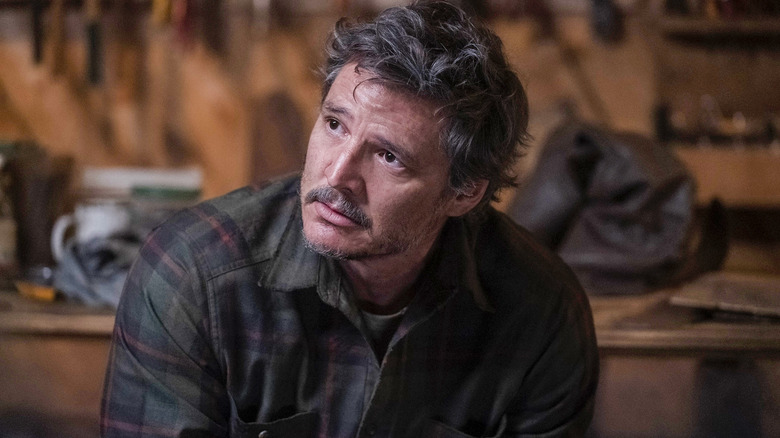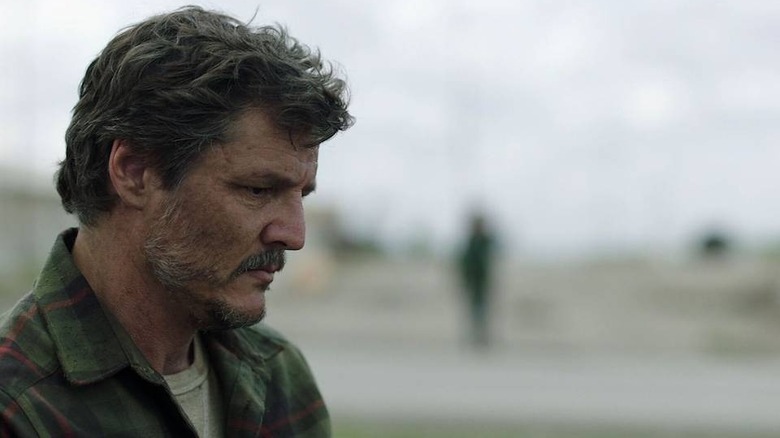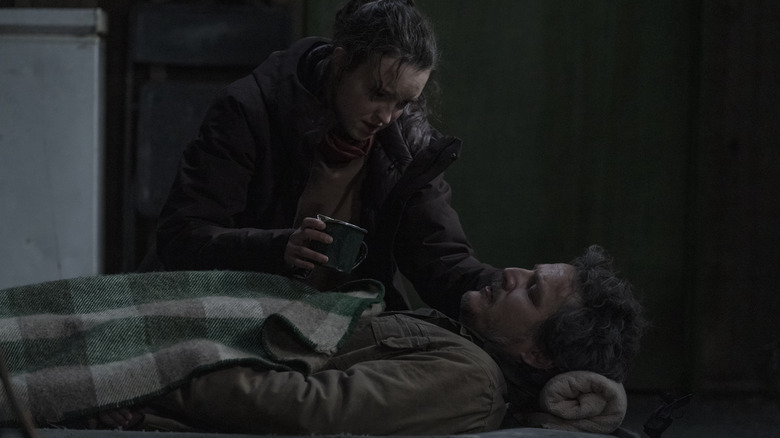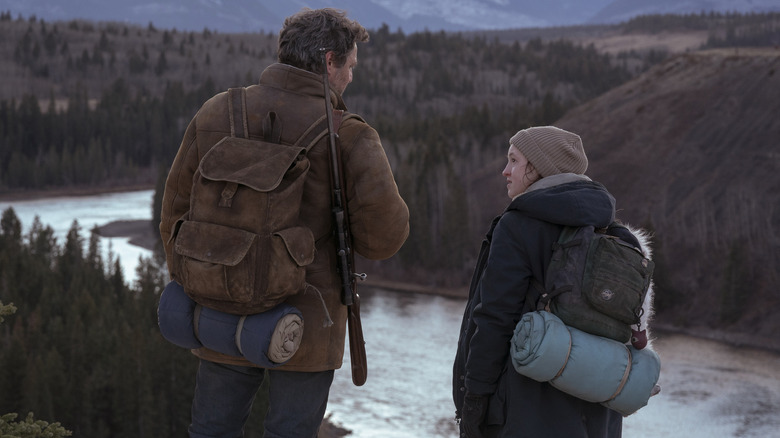In HBO's The Last Of Us, Joel Is Only Human
This post contains spoilers for "The Last of Us" episode 8.
"The Last Of Us" is a triumph of an adaptation. Despite the many titles refuting the so-called video game adaptation curse, stories adapted from video games still have a terrible reputation. But this latest HBO hit immediately rose above those fears and only gets better with each passing week. The series strikes an impressive balance: it translates aspects of the beloved game (with scenes that match the original, shot-for-shot, and dialogue lifted directly from cutscenes) but also changes key relationships and aspects in ways that heighten the emotional stakes. Even the smallest alterations serve a huge purpose, elevating the series thematically while never losing sight of what truly matters. Perhaps the best example of that can be found in Joel (Pedro Pascal), the hardened survivor at the center of this story.
In all the ways that count, show Joel is the same as the character we meet in the game: a brutal man so shaped by loss that he has few moral lines left to cross. He's been emotionally detached for years and doesn't expect that to change when Ellie (Bella Ramsey) enters his life, but try as he might, that little girl quickly worms her way into his heart. So, besides being a couple of years older, how is Joel different from his video game counterpart? Co-creator Craig Mazin put it into words before the series even debuted: "I like my middle-aged people middle-aged," Mazin told The New Yorker, making a promise that the show has absolutely kept.
The last few episodes have seen Joel deeply concerned about his ability to protect Ellie; he's made too many mistakes to trust himself with her safety. But the truth is, Joel isn't slipping — he's aging. Time has taken a toll on him, the same way that it does on everyone else.
Joel is just a man
In the game, Joel is practically super-human. He brutally takes on legions of enemies and — in true video game fashion — can patch up fatal wounds with nothing but alcohol and tattered rags. He has superhuman hearing, allowing him to locate enemies across the map; he's strong enough to punch people to death; and he's proficient with every single weapon he encounters. Also, by virtue of being the game's primary playable character, his health can always be fully restored. It's almost as if his adventure with Ellie takes no real toll. The only exception is his near-fatal injury on the college campus, but even then, he plows through the cannibal clan well before he's fully healed.
Pedro Pascal's Joel could never.
It's not that this version of Joel is weak. Making that case would be absurd: the fact that he's survived the world for this long speaks for itself. Not to mention the fact that we've also seen him fend off clickers, snap necks, win gunfights, and generally terrify anyone with the slightest knowledge of his violent history. Joel is capable — but there's nothing super-human about the guy.
For a while, Ellie is none the wiser. Though he isn't always the warmest companion, Joel is her protector. He's the guy who beat a FEDRA soldier to death in her honor. But we soon see cracks in that facade. Just as Mazin promised, Joel is first and foremost a 56-year-old survivor. He's lost his hearing in one ear; his knees aren't what they used to be; he falls asleep when he should be on watch; he freezes when a moment demands he acts quickly, and he's battling panic attacks.
Joel isn't a bulldozer or an unkillable fiend. He's just a man. He can be stabbed or shot, like anyone else. Horrifying as it may be, Joel can be killed.
Just barely holding on
Joel's mortality has never been more significant than it is in "When We Are In Need." Unconscious and short of breath on a ratty old mattress, he is so far from the force of nature that Marlene ominously introduced into Ellie's life. It seems a fruitless effort when Ellie leaves him with a knife and instructions to defend himself; the man can barely open his eyes! Later, when she's captured and he's left alone, it feels outright insane when David (Scott Shepherd) tells his crew to take out the "dangerous" man. Sure, Joel's pretty tough, but last we checked he was just a body bleeding out on a mattress.
Joel ends up living up to his violent reputation, but he doesn't exactly come across as a terrifying superhuman fighter. He takes each of the gunmen down by ambush, struggling to catch his breath all the while. There's no question: if he had approached them head-on, he'd be an easy target. When his final victim comes to, Joel is barely holding himself together, stumbling as he beats down a man tied to a chair. He has to steady his stance against a target who can't possibly fight back.
That fragility adds serious stakes to this episode. We don't have the comfort of thinking, "Ellie will be fine once Joel arrives.'"Joel is practically limping through the snow as he searches for David's ski resort. In the end, Ellie has to come to her own rescue in a horrifying and harrowing act of violence.
This version of Joel was made for TV
Thematically, it's so much more interesting for us to face down Joel's physical vulnerabilities. The man is fueled by raw, unmanaged emotional turmoil: rage that comes out in his fists. But that unflinching brutality — his willingness to pop a kneecap here and smash a face in there — is tempered by the fact that his body is fighting against that desire to take on every threat in the world.
Not having to factor in gameplay means "The Last of Us" is much more grounded in emotion. It's more interested in Joel's internal conflict than watching him decimate an army of infected or more FEDRA forces. And honestly, that better suits the story. This has never been a hardcore zombie apocalypse action romp. Everything you need to know about the show is summed up in the final moments of this penultimate episode: when Joel and Ellie are limping into the distance, together.
Still recovering from his stab wound, Joel can barely stand straight. He's basically leaning on Ellie for physical support ... but he's holding her up too. After an undoubtedly traumatizing experience, Joel offers comfort. He's the person she needed to see, to actually live through this moment. Injured and unable to fight, he's still her protector in whatever way he can be.



